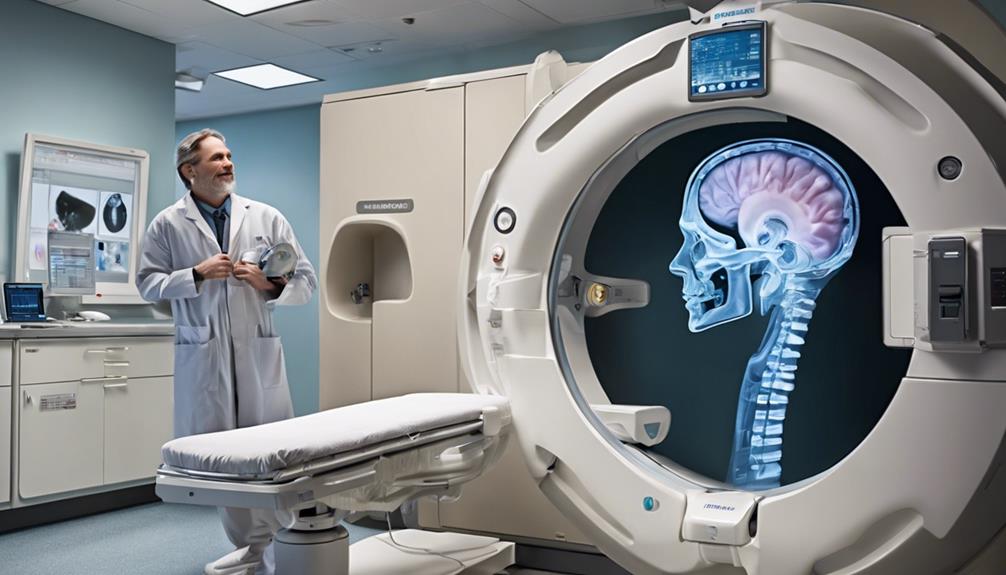Have you ever wondered about the number of cochlear implants distributed annually worldwide when reflecting on the advancements in global healthcare?
The data surrounding the average number of cochlear implants performed annually offers a fascinating insight into the growing utilization of this transformative technology.
Join us as we explore the latest trends and statistics in cochlear implant procedures, uncovering the profound impact these devices are making on the lives of individuals with hearing impairments.
Stay tuned to discover the evolving landscape of cochlear implant technology and its implications for the future.
Key Takeaways
- Over 736,900 cochlear implant devices were implanted worldwide by December 2019.
- Global prevalence of cochlear implant procedures has consistently increased from 2015 to 2019.
- Market leaders like Med El, Cochlear Limited, and Advanced Bionics have advanced accessibility.
- Research explores advancements like shortened electrode arrays and combining implants with hearing aids.
Global Statistics on Cochlear Implants
In analyzing the global statistics on cochlear implants, it becomes evident that over 736,900 cochlear implant devices were implanted worldwide by December 2019. These implants have made a significant impact on both adults and children with hearing impairments. In the US alone, approximately 118,100 adults and 65,000 children have received cochlear implants, highlighting the widespread use and acceptance of this technology.
The incidence of cochlear implantation among traditional adult candidates has been on the rise, increasing from 244 to 350 per 100,000 person-years from 2015 to 2019. This trend demonstrates the growing recognition of cochlear implants as a viable solution for hearing loss in adults. Moreover, with FDA approval for adults since the mid-1980s and for children since 2000, the accessibility of cochlear implants has expanded, leading to improved outcomes.
Early implantation of cochlear implants in children has been particularly beneficial, as it has been shown to enhance speech and language skills. This underscores the importance of timely intervention and highlights the positive impact cochlear implants can have on individuals' lives.
Trends in Cochlear Implant Procedures

Analyzing the data from 2015 to 2019 reveals a consistent increase in the global prevalence of cochlear implant procedures. This trend signifies a positive shift towards addressing hearing loss through innovative interventions.
The following observations shed light on the evolving landscape of cochlear implantation:
- Incidence of cochlear implant procedures among adults has risen steadily, with traditional candidates showing a notable increase from 244 to 350 per 100,000 person-years in the US.
- Over 30,000 adults underwent cochlear implantation in the US during the specified period, indicating a growing acceptance of this surgical solution for severe hearing impairments.
- The global surge in cochlear implant surgeries underscores a heightened demand for such procedures worldwide, reflecting enhanced accessibility and utilization of this technology in combating profound deafness.
Impact of Cochlear Implants Worldwide
Examining the global landscape of cochlear implants reveals a profound impact on millions of individuals worldwide. With over 736,900 cochlear implant devices implanted globally by December 2019, the technology has been pivotal in transforming the lives of over a million deafened individuals.
The global reach of cochlear implants is evident, with significant numbers of recipients benefiting from this life-changing technology. Market leaders like Med El, Cochlear Limited, and Advanced Bionics have played a crucial role in advancing the accessibility and effectiveness of cochlear implants on a global scale.
In the US alone, approximately 118,100 adults and 65,000 children have received cochlear implants, showcasing the widespread adoption and acceptance of this innovative solution. The impact of cochlear implants goes beyond restoring hearing; it empowers individuals to engage more fully in the world around them, highlighting the profound benefits and positive outcomes associated with this remarkable technology.
Advancements in Cochlear Implant Technology

With continual technological advancements, cochlear implant technology has significantly progressed in enhancing speech recognition and intelligibility for users. Modern cochlear implants incorporate sophisticated features that aim to improve the overall experience for individuals with hearing loss.
- Front-End Processing: Recent advancements in front-end processing have led to improved speech recognition in noisy environments, addressing a common challenge faced by cochlear implant users.
- Unilateral Implant Challenges: The plateau in speech recognition with unilateral implants since the 1990s has spurred the need for interface redesign. This redesign aims to further enhance outcomes for individuals with only one cochlear implant.
- Technological Developments: Ongoing research and development efforts are focused on implant innovations that target enhancing speech intelligibility, production, and recognition. These advancements seek to push the boundaries of what cochlear implants can achieve, ultimately benefiting users worldwide.
Future Outlook for Cochlear Implants
As we look ahead to the future of cochlear implants, ongoing research and innovation continue to shape the landscape of auditory technology, paving the way for enhanced hearing experiences worldwide.
With over 736,900 cochlear implantations globally by December 2019, researchers are exploring advancements like shortened electrode arrays and combining implants with hearing aids to address specific types of hearing loss, particularly sensorineural hearing loss.
The National Institute on Deafness and Other Communication Disorders (NIDCD) plays a crucial role in supporting research for improved hearing outcomes through cochlear implant technology.
Early cochlear implantation in children has shown promising results in enhancing speech and language skills, with approximately 65,000 children and 118,100 adults in the US having benefited from implants.
While cochlear implants don't restore normal hearing, they significantly assist individuals in recognizing warning signals, understanding speech, and identifying various environmental sounds, thereby improving their quality of life.
Frequently Asked Questions
How Many Cochlear Implants Are Done Each Year?
We perform a significant number of cochlear implants annually, helping individuals regain their hearing abilities. The procedure contributes to the betterment of countless lives by enhancing auditory function.
Our commitment to excellence ensures that each implant is meticulously placed, improving the quality of life for those affected by hearing loss. Cochlear implants continue to be a vital solution for many, and we take pride in our role in this transformative process.
What Is the Rate of Cochlear Implant?
When looking at the rate of cochlear implantations globally, it's crucial to consider the increasing acceptance and utilization of this technology. The numbers show a steady rise in implantations each year, reflecting a growing trend towards this solution.
As we delve deeper into the data, we uncover a significant shift in attitudes and practices surrounding cochlear implants, highlighting the impact and importance of this innovative technology in the field of hearing restoration.
What Is the Incidence of Cochlear Implants?
The incidence of cochlear implants has been steadily increasing over the years, reflecting a growing acceptance and utilization of this technology among adults with severe hearing loss.
In the US alone, over 30,000 adults opted for cochlear implantation between 2015 and 2019. Globally, the average number of cochlear implants per year among adult traditional candidates rose from 244 to 350 per 100,000 person-years during the same period.
This trend signifies a positive shift towards addressing hearing impairments.
How Big Is the Cochlear Implant Market?
When considering the size of the cochlear implant market, it's clear that it has experienced significant growth in recent years. With key players like Cochlear Limited, Med El, Sonova, Nurotron, and Oticon Medical leading the way, the market has expanded rapidly.
The increasing number of cochlear implants sold annually reflects a rising demand for these devices worldwide. This growth parallels the advancements in technology and accessibility, making these implants more widely available.
Conclusion
In conclusion, the global average of cochlear implants per year has seen remarkable growth, with over 736,900 devices implanted worldwide by December 2019. This trend reflects the increasing adoption of this life-changing technology to address profound deafness.
With advancements in cochlear implant technology and a focus on early intervention, the future outlook for individuals with hearing loss looks promising. Let's continue to celebrate the positive impact cochlear implants have on improving speech and language skills worldwide.










